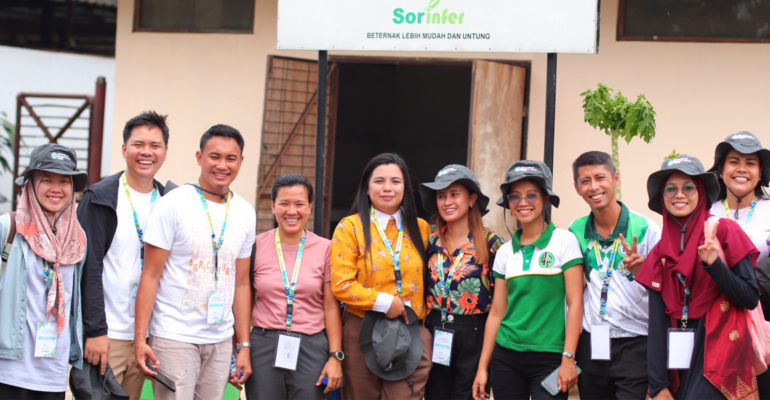IPB University Post Graduate School Invites Summer Course Participants to Visit the Jonggol Livestock Education and Research Unit

IPB University Post Graduate School (SPs) invites participants of the 2023 Summer Course to visit the Jonggol Livestock Education and Research Unit (UP3J) in Singasari Village, Jonggol Subdistrict, Bogor Regency.
Prof Dewi Apri Astuti, one of the speakers, mentioned that one of the practical fieldwork experiences for the 2023 Summer Course participants is to visit the Jonggol Education Farm of IPB University, specifically UP3J of the Faculty of Animal Sciences at IPB University and the Oil Palm Education and Research Farm of IPB University-Cargill.
“At UP3J, there are approximately 400 sheep and cattle, as well as livestock feed crops that support research and training for students, such as indigofera, sorghum, elephant grass, and others in specific areas to facilitate existing livestock,” she said.
She explained that UP3J was established from 1985 to 1991 through cooperation with the Australian government, and its management was carried out jointly by IPB University and Australia. In 1993, the management of UP3J was transferred to the Faculty of Animal Sciences at IPB University independently.
UP3J also provides training for farmers and aspiring farmers who want to develop their profession in livestock production, processing, marketing, and related livestock businesses.
“The hope is that the 2023 Summer Course participants can understand that IPB University has field units that are not only for research but also for productive commercial activities,” she explained.
Meanwhile, Agus, one of the coordinators at UP3J, mentioned that the land area of UP3J is approximately 169 hectares. UP3J serves the purpose of supporting education, research, community service, and livestock extension. “This land area is very suitable for developing livestock and producing animal feed,” he added. (HBL/Rz) (IAAS/Hap)



